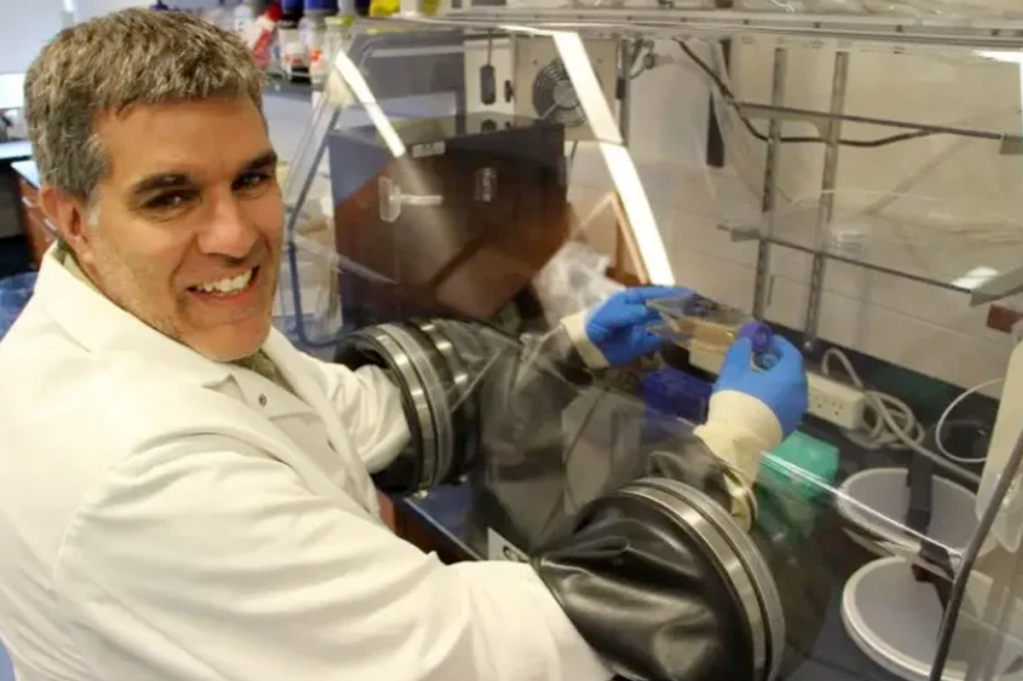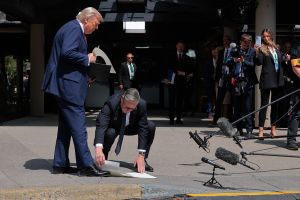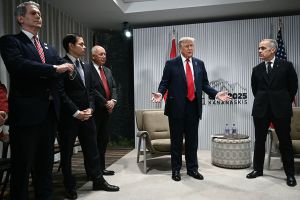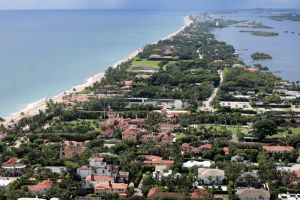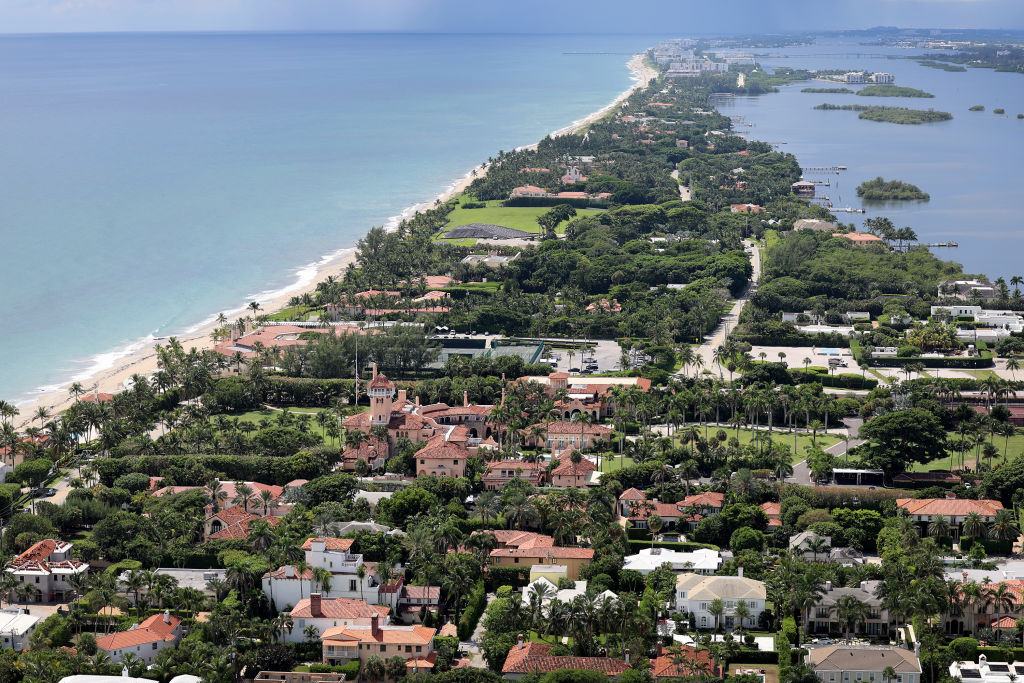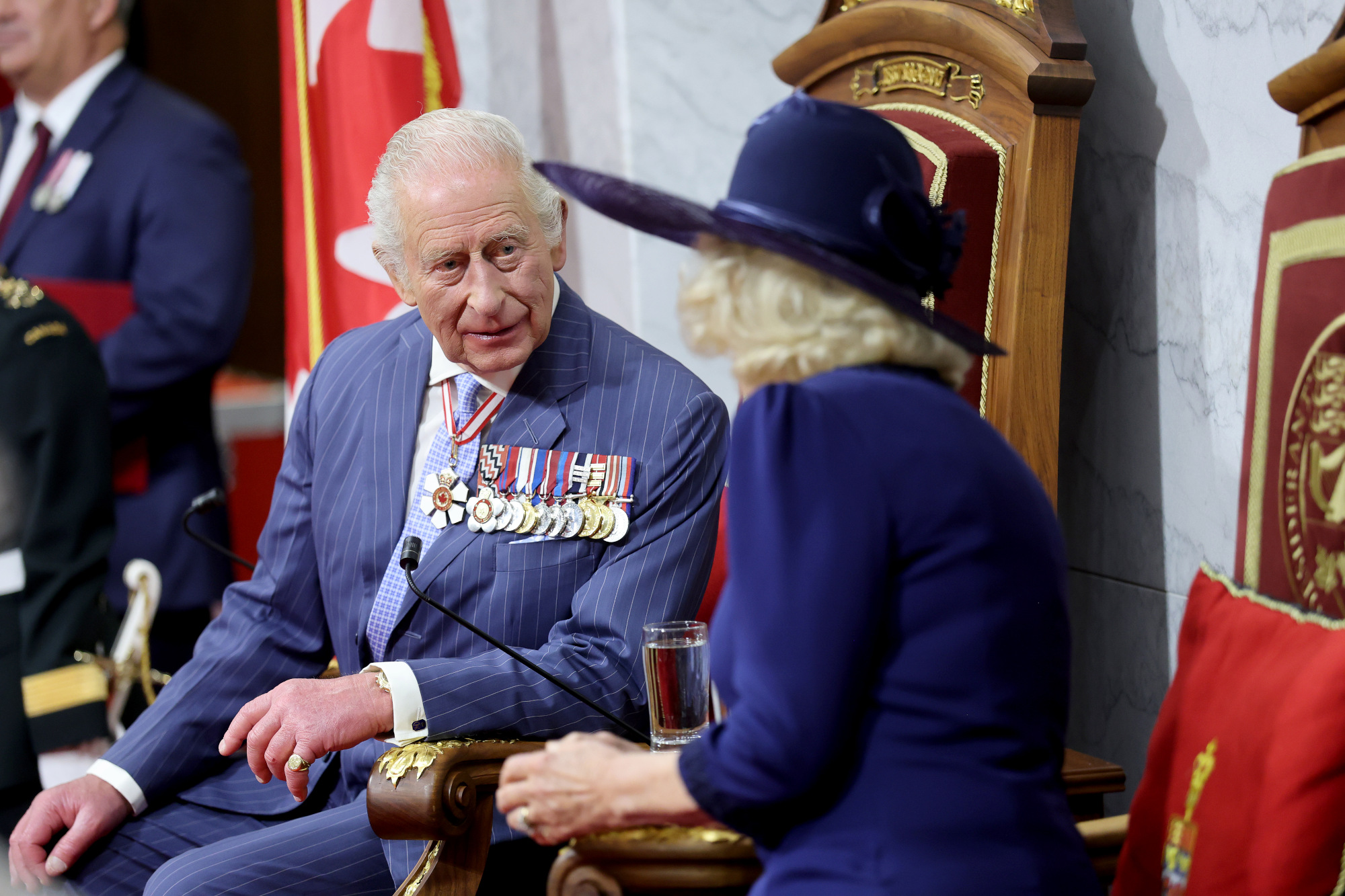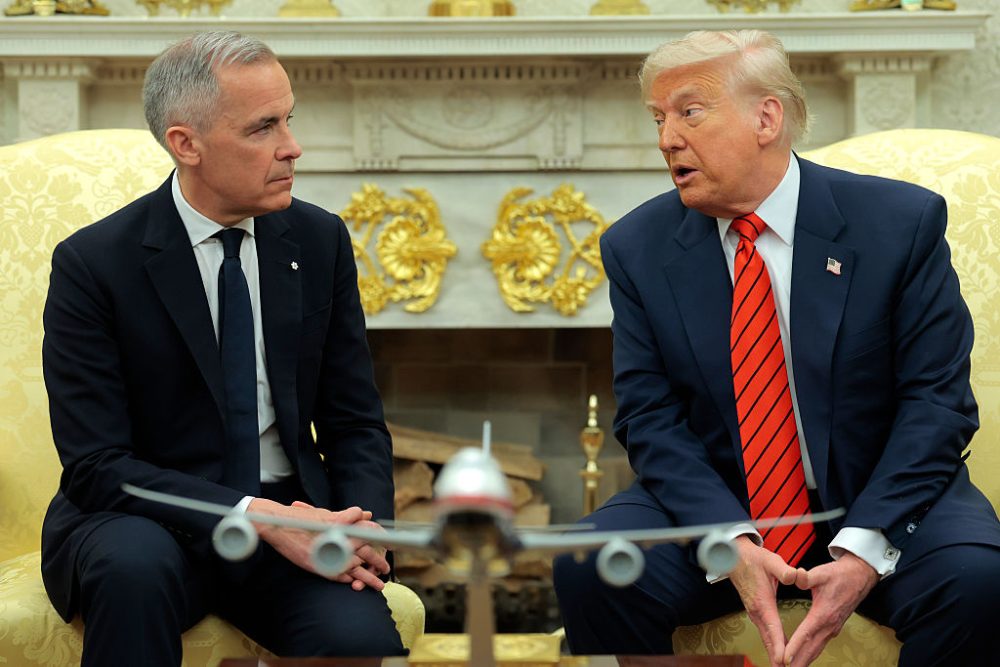Something is rotten at the University of Guelph. Just what deceased creature has gotten stuck under the floorboards remains unclear, but a strong odor of something that’s not right assails the nostrils when one reads the open letter recently penned by Dr Byram Bridle, an immunologist and tenured professor at the University of Guelph in Ontario, Canada, addressed to the president of the university.
What has happened at Guelph is a useful case study for everyone, because vaccine mandates are spreading like the plague they aim to cure. While they are ostensibly established for a good purpose — to reduce outbreaks of COVID on campus — their application in many cases is savagely disproportionate to the good they hope to obtain, and their very existence clashes with the actual science of herd immunity. Or so Dr Bridle writes.
Bridle is a viral immunologist who runs a lab developing cancer vaccines. One angle of his research involves treating cancer by injecting a virus into malignant tumors, a virus that will target and kill cancerous cells only, leaving the body cancer-free. The aim is to test this therapy in animals first and subsequently transfer to humans. A member of the department of pathobiology, his field extends into both veterinary medicine and human biology. His lab is funded by numerous well-known cancer charities, and he has received several prestigious research and teaching awards. When the coronavirus crisis started, the Bridle lab was declared a critical care lab and awarded a government grant to look into using its cancer vaccine platforms to develop a vaccine against COVID-19.
Herd immunity and COVID vaccines are, in short, right up Dr Bridle’s alley. But strangely, when he and the only other two non-administrative immunologists at the university — all of whom were following the latest COVID-19 research closely — approached campus leadership and the regional public health unit, offering repeatedly to consult or serve on COVID-19 response committees, they were turned away, even though the health unit lacked experts with comparable competence.
As administration of the current vaccines began, Bridle began expressing cautious concern, which soon developed into serious misgivings, especially with regard to vaccinating young people and pregnant women. Full-blown cancellation struck in late spring when he spoke in a radio interview of a possible link between the vaccines and heart inflammation. He was perfectly right, of course — the link is now universally recognized — but he was immediately accused of misinformation, harassed both by colleagues and anonymous strangers, insulted, accused of killing people and impersonated on the internet (at time of writing the parody Twitter handle and the domain using his name have clarified that they are not authored by Dr Bridle himself, though their true authors have bravely chosen to remain anonymous). Perhaps most shamefully, his parents’ private medical information, he says, was leaked onto the internet.
This is not what we call scientific debate. This is what we call intimidation.
Yet the same unacceptable methods are being used to impose the University of Guelph’s vaccine mandate. Bridle writes of students and parents physically escorted off campus by security, of staff walked out and suspended indefinitely without pay, often done in a highly public manner, apparently so that all can see the ignominious fate of the unvaccinated. Talk about intimidation tactics. He himself has been banned from campus for at least a year (despite demonstrating his own natural immunity via testing).
He writes, too, of those who are vaccinated but who are understandably disturbed by the draconian measures and fearful of an unending regime of booster shots imposed under threat of dismissal. He writes of ‘many’ students and staff members under great duress to accept vaccination, in states of extreme anxiety, on the verge of breakdown, sobbing uncontrollably before, during and after the vaccination process.
This — as he points out — does not constitute informed consent.
Then there’s the question of natural immunity. Why can’t those who have developed robust immunity against COVID naturally be exempted from vaccination? Surely if the goal is to avoid outbreaks, this demographic should be welcomed with open arms?
The usual answer is that ‘we can’t test for long-lasting immunity because antibody levels drop naturally after a time’. But the University of Guelph is fortunate in possessing cutting edge immunology labs, capable of devising reliable testing to detect not just antibodies but B-cell memory, which can recognize all parts of an infecting virus even many years later (and not just the portion known as the spike protein. Current vaccines only react to the spike protein, meaning the virus only has to mutate that single protein for the vaccine to become ineffective).
Dr Bridle says he and two colleagues met with administration in March 2021 to propose just such a plan — which if successful at Guelph could have served as a model for other places. At first the administration agreed enthusiastically — but subsequently attempts to follow through met a brick wall. This isn’t just a matter of greater convenience for the naturally immune — as an immunologist and a public servant, Dr Bridle is also extremely concerned about the health consequences of vaccinating persons who have already had a successful immune reaction to the virus. As he writes in his letter, he believes it could disrupt their immune systems in the long term, and is likely to result in a higher frequency of side effects than in those who have never encountered the virus.
And what about exemptions? Dr Bridle reports that faculty has been celebrating the fact that medical exemptions to the mandate have been made very difficult to obtain — and he asks why? Why would you want someone to take a medical treatment that is likely to result — perhaps already has resulted after one shot — in harm? Would these faculty members celebrate forcing someone with a known nut allergy to eat peanut butter? It’s a strange and disturbing reaction.
As for religious exemptions, while some were granted, they were subsequently rescinded (again, why?) A more detailed application form was put out, and many who had previously obtained an exemption were disqualified. Since when do publicly funded secular organizations consider themselves competent to judge of the validity of a person’s stated religious belief? Or have they become theologians while we weren’t looking, demanding blind faith in a sacred ‘science’ scientists may only repeat reverentially, never debate?
Because whatever is serving as the underlying logic to this universal mandate, it’s not the science of immunity. When travelers to Belize get a yellow fever shot, instead of wrapping themselves in biohazard bags and avoiding the country where they might encounter the disease, they head straight to the world’s yellow fever hotspots fearlessly, mask-free, mixing and mingling with all and sundry. As Bridle points out, this is because they are protected and they know it. But at U of G, where 99 percent of those on campus are vaccinated, fear, masks and draconian measures reign supreme. Isn’t there maybe a little bit of a disconnect between the ferocious insistence on vaccination and the totally underwhelming end result?
Is Dr Byram Bridle right in his concerns about the vaccines? I’m unqualified to pass judgement on his analysis — and so, I would wager, are 99 percent of my readers. All we can do, in the absence of advanced scientific training, is decide whom to trust. And I don’t know about you, but I don’t have a lot of trust for groups who resort to intimidation, threats, coercion or public shaming to make people do what they want. I don’t feel confident when my mind is faced with contradictions between what is being said (the vaccines are effective and will end the pandemic) and what is being done (the vaccinated are forced to act as if they are still in danger from each other and from the unvaccinated). And I don’t find it a healthy sign when actual, reputable experts who have devoted their careers to these precise issues find their lives destroyed when they don’t parrot the party line.
It’s the sniff test, in short. And this whole thing stinks.
Update 10/12/21, 2:15 p.m.: Dr Charlotte Yates, president of the University of Guelph, issued a response dated September 24. While recognizing Dr Bridle’s ‘contributions in [his] field of viral immunology’, Dr Yates states that the issues at hand ‘are matters of public health and government policy’ with ‘social-ecological implications both within our community and around the world’. For this reason Dr Bridle’s scientific concerns are set aside in favor of the guidance of unnamed persons trained in public health policy and a rather condescendingly described — and anonymous — group of ‘internationally acclaimed experts in various relevant fields’. What, pray, is Dr Bridle if not an internationally acclaimed expert in a relevant field?
No attempt is made to respond to Dr Bridle’s specific concerns. Dr Yates’s concluding paragraphs strike an ominous and faintly threatening note: ‘Under different circumstances, and perhaps in more normal times, academic and scientific differences among colleagues would not have such immediate and potentially critical consequences. During an ongoing global pandemic, however, they do.’
This leaves the reader wondering about how the ‘science’ guiding these nameless ‘internationally acclaimed experts’ to end the pandemic, was obtained. If now is not the time for ‘academic and scientific differences among colleagues’, did the COVID-related science issue fully-formed from the heads of ‘internationally acclaimed experts’, somehow in perfect unison, all without the need to indulge in distractions like ‘scientific differences’ or ‘the scientific method’?
Will the most famous victim of COVID-19 turn out to be Science itself?



